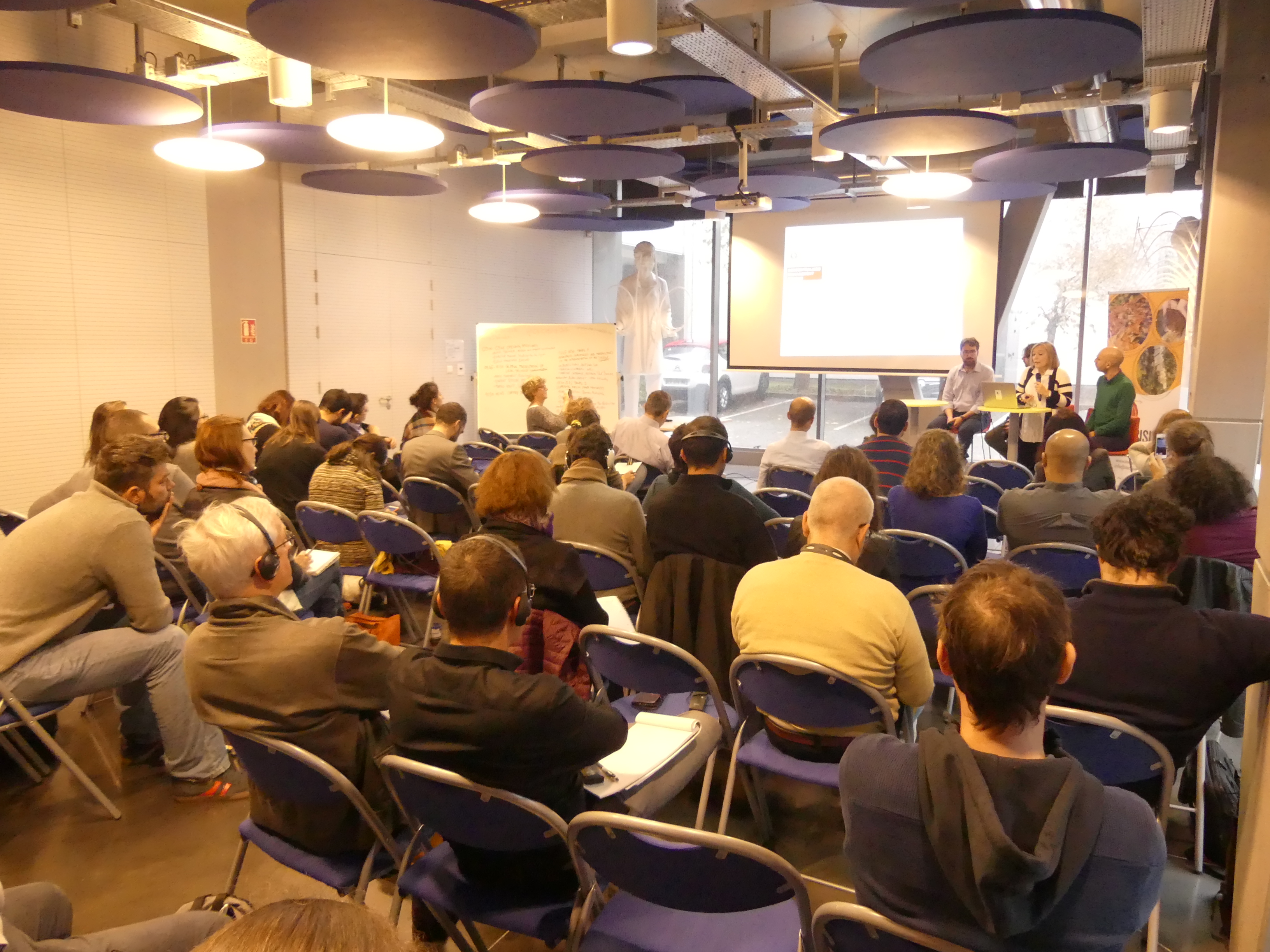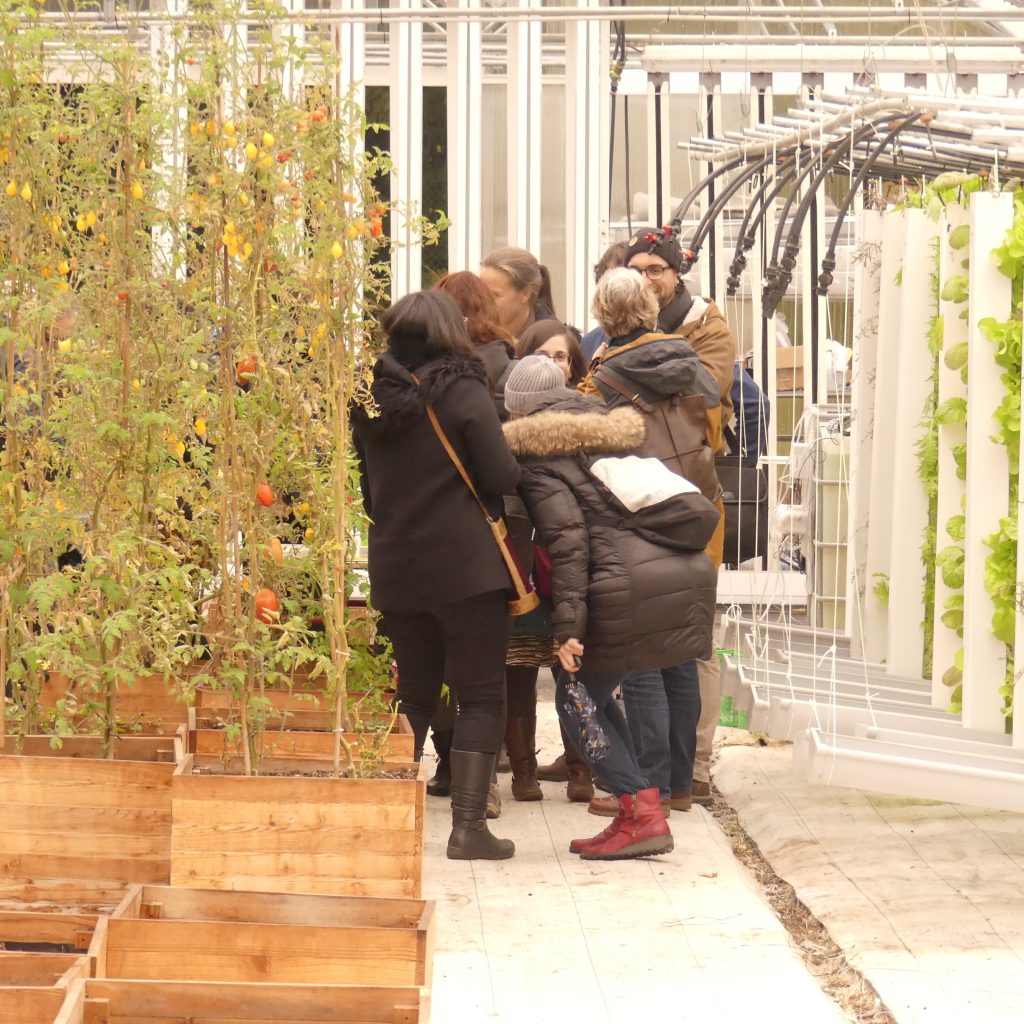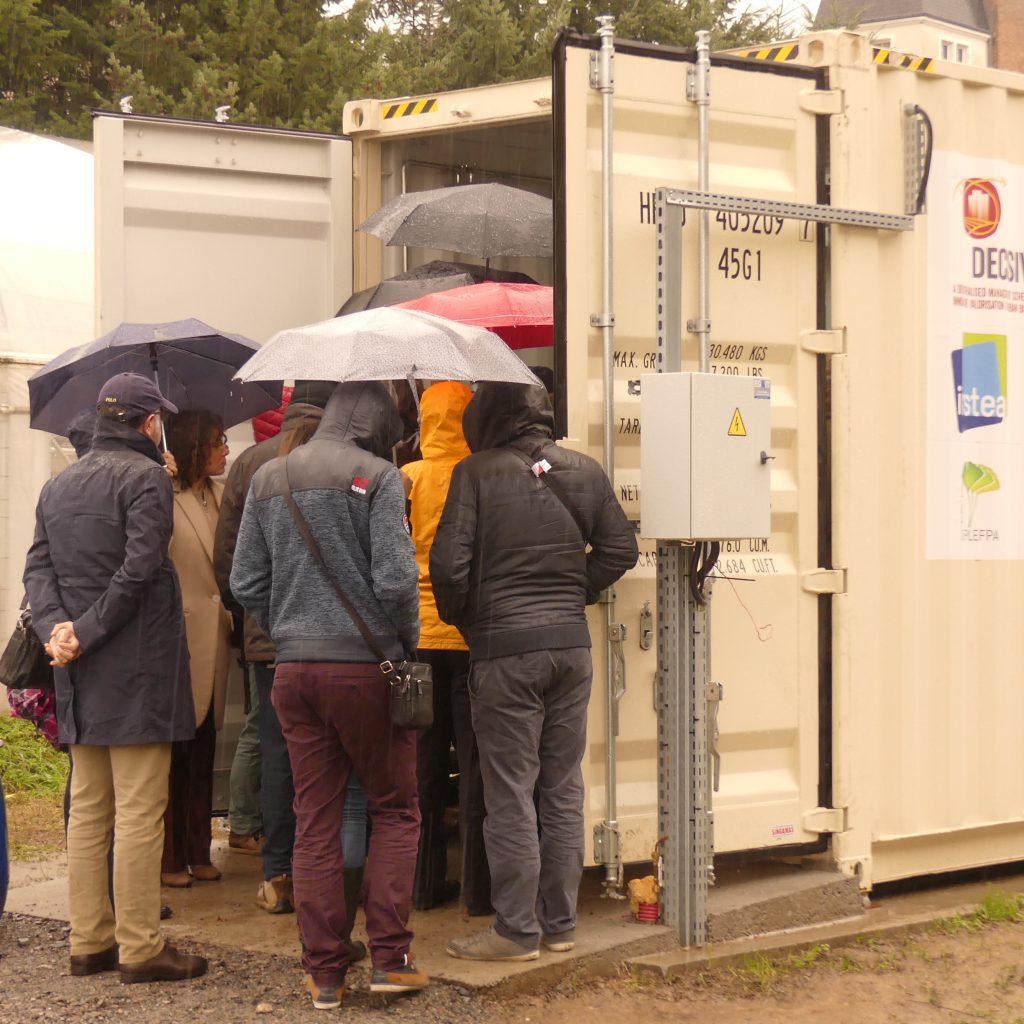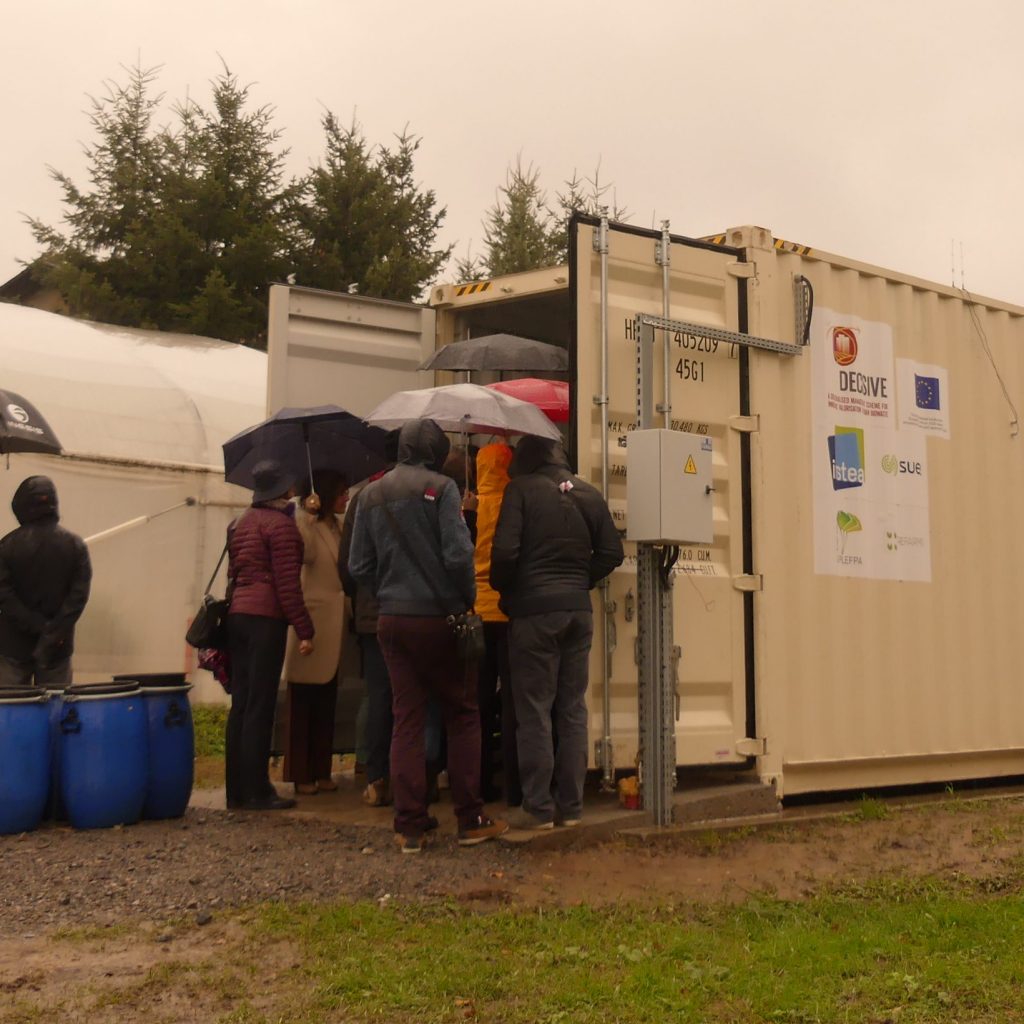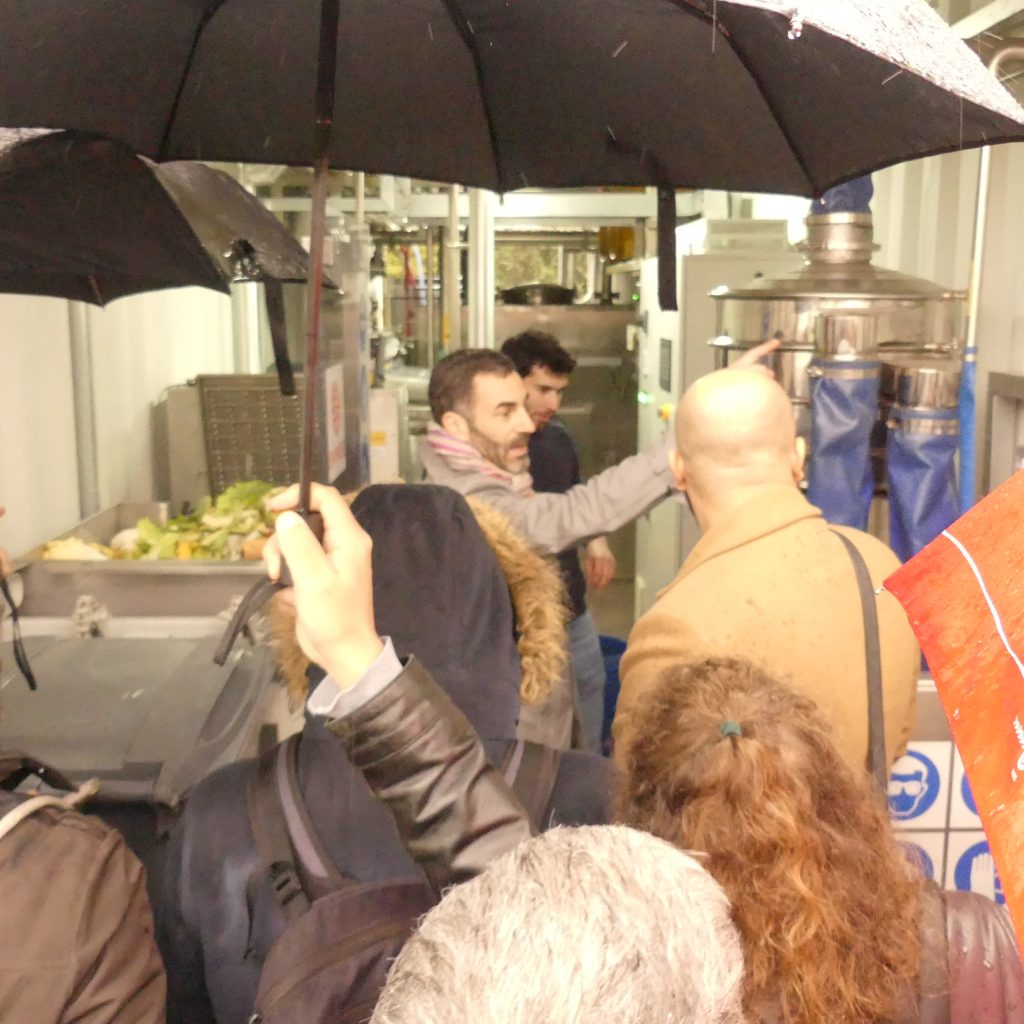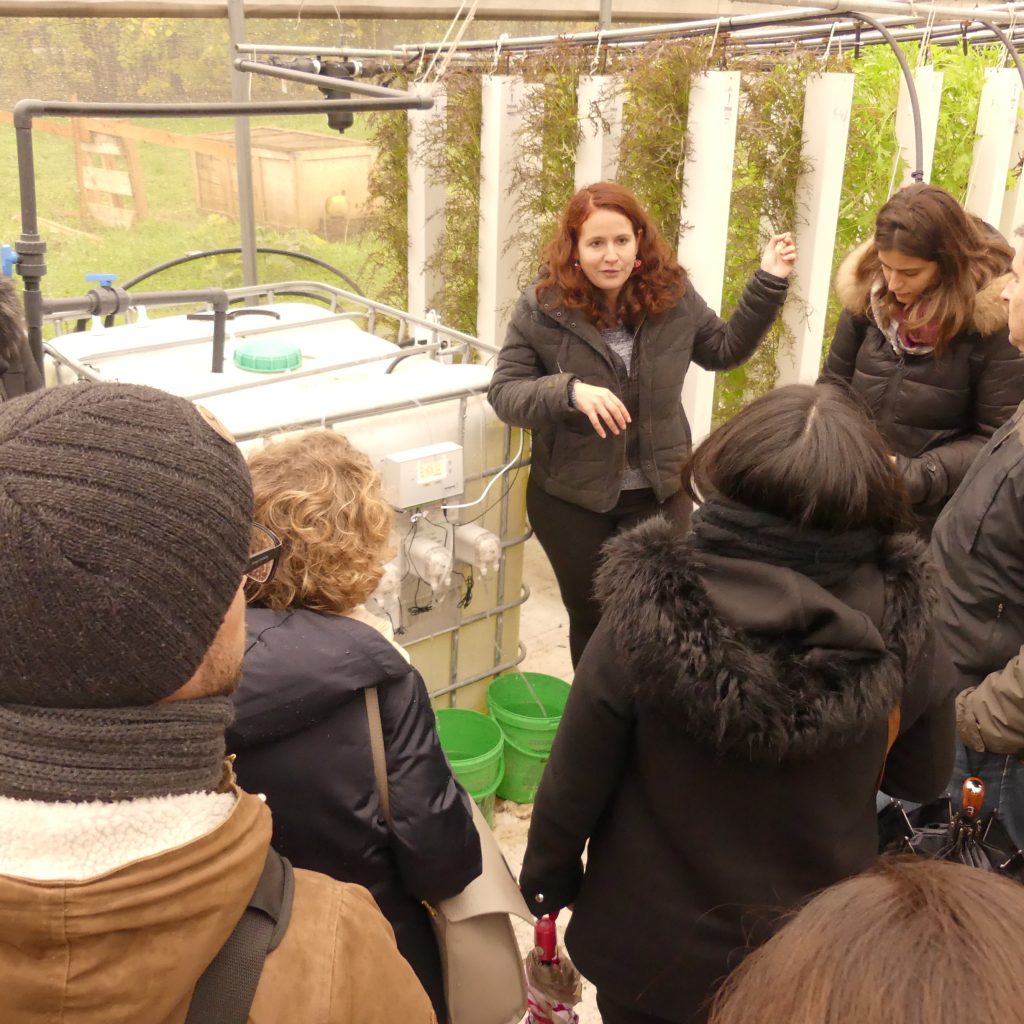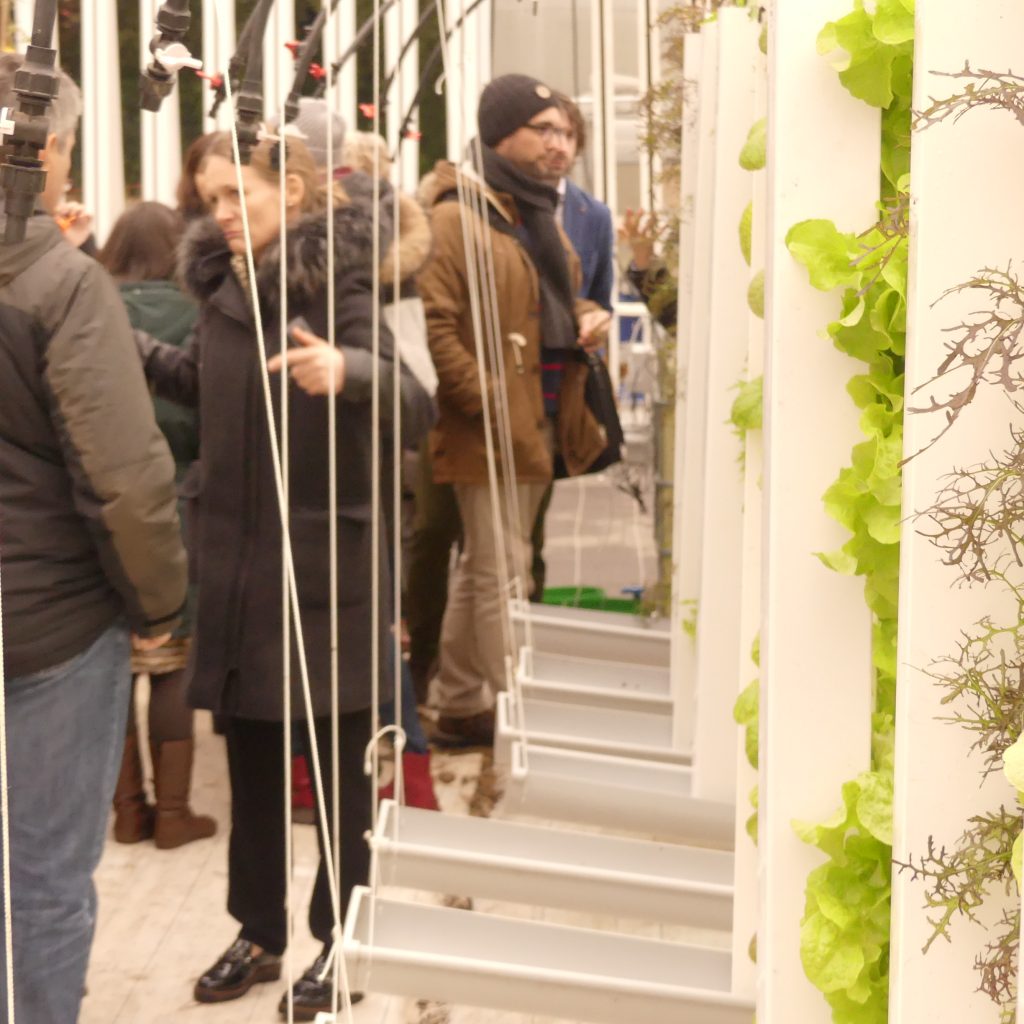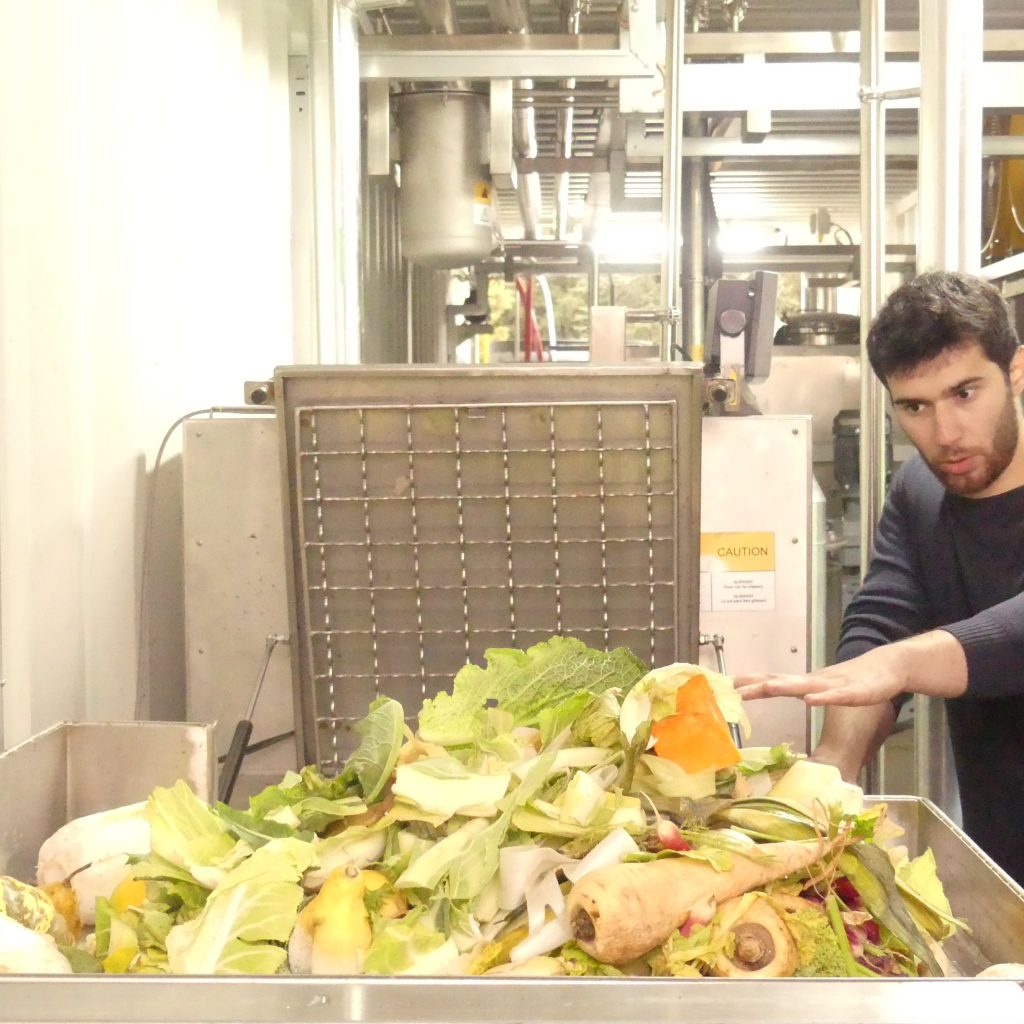A big milestone was marked on 14 November in Lyon, as the local DECISIVE demonstration site displaying the concept of decentralised biowaste management was launched in front of 70 participants.
Apart from the project consortium of nearly 30 participants coming from 14 partner organisations who came to Lyon very much looking forward to the launch of the result of their 3 years long work, the launch attracted a large number of local audience, too. Another 40 participants came from Lyon, its suroundings and other parts of France, as well as abroad making the overal attendance very diverse, including journalists, researchers, policy makers and waste management operators.
Hosted by the local Irstea branch in Villeurbanne, the morning conference which preceded the launch and the visit to the demonstration site, was opened by its director Pascal Boistard and Anne Tremier, the project coordinator and researcher at Irstea in Rennes. The event was brought to the attention of Lyon Metropole as well and Emeline Baume, Lyon Metropole’s councilor for waste prevention and circular economy paid a visit to the conference enriching it with her opening speech and Lyon’s efforts in waste management improvements and implementing circular economy principles.
As an introduction to what the participants would see in the afternoon, a session was dedicated to the demonstration. It was composed of presentations and experiences from Eric Dargent, CEO of Refarmers, the local project partner who is the owner of the demonstration site, Vincent Ripoche, director of EPLEFPA Lyon-Ecully-Dardilly who hosts the pilot unit on its land and Pablo Kroff of SUEZ who was the developer of the concept and who acquired the pilot unit from ENWISE in China. Two additional panel discussions took place as well, which looked at advantages challenges and perpectives of implementing concepts such as the one of DECISIVE and learning from other projects across France and Europe with panellists from Rennes Metropole, Porto and Lyon.
The demonstration site itself was in the spotlight in the afternoon, when the participants went on a study tour at the Training Centre and Promotion Horticole in Ecully (CFPH) where a practical demonstration of the processes and functioning of the site took place.
The demonsration site with the micro anaerobic digestion unit consists of a “study zone” defined as a theoretical area centered around it which should provide 50 t of biowaste per year, collected from restaurants. A radius of less than 2 km has been fixed in order to define this zone to characterize the baseline scenario. As source-separation of biowaste is not compulsory in the Grand Lyon area, the restaurants that will be involved in the project will be the ones to which Refarmers and/or the CFPH deliver fresh produce – testing a circular model – and that will agree to take part in the demonstration and voluntarily source-separating their biowaste. The micro anaerobic digestion unit is installed close to the Refarmers’ greenhouse. Any electricity surplus produced by a Stirling engine – i.e. once the consumption of the demonstration site itself is reached – will be stored on batteries and used to power pumps, lighting and ventilation. Any heat surplus will be used to heat the greenhouse, and potentially the nearby house and hotel.Read more about the demonsration site here.

